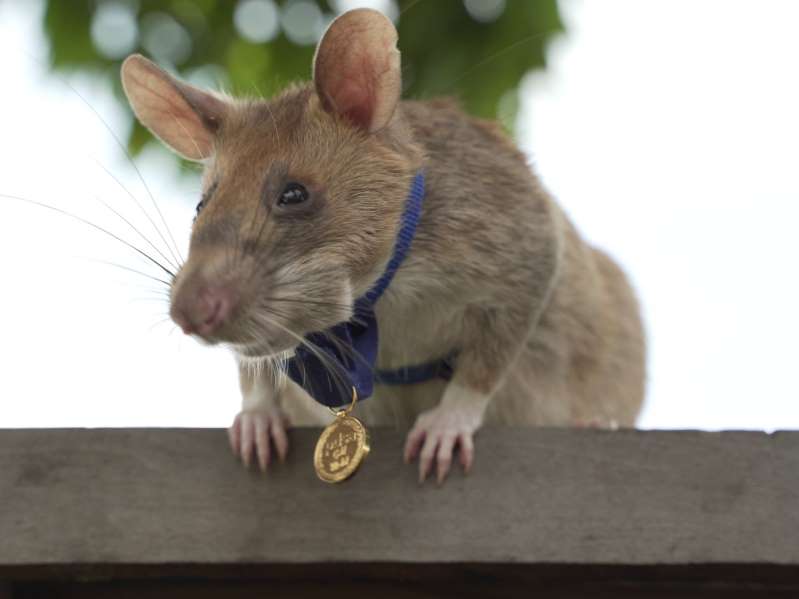Naughty dog relaxes on the sofa after destroying pillow
![]()
![]()
![]()
![]()
![]()
![]()
![]()
Naughty dog relaxes on the sofa after destroying pillow
This is the moment a mischievous pooch with an appetite for pillows was caught by her owner relaxing in the mess she had made.
The white bull terrier from Abu Dhabi in the United Arab Emirates, was found reclining on a sofa in a pile of pillow stuffing that she had just ripped up.
Her owner filmed the moment she is caught - as the cheeky dog keeps her eyes covered and refuses to respond to being scolded.
The footage, filmed on November 27 last year and recently shared online, shows the chaotic scene unfold.

A baby is heard crying in the background as the dog's owner begins to scold the naughty pooch.
The camera pans around showing the mess, with pieces of foam stuffing all over the floor and the sofa.
Despite being caught red-handed, the dog lays on her back and wags her tail optimistically.
The naughty terrier keeps her eyes buried in the pillow - the only giveaway that perhaps she knows she is in big trouble!
According to the RSPCA, one of the reasons dogs may destroy household objects when they are left alone is due to separation anxiety.
Research suggests that 8 out of 10 of dogs will find it hard to cope when left alone.
Some dogs will bark or destroy things - like this one - to show their feelings, while others will sit quietly, feeling worried.
Reference: Clare Mccarthy For Mailonline 2 days ago: 24/09/2020
Graham Norton grieving death of his dog
![]()
![]()
![]()
![]()
![]()
![]()
![]()
Graham Norton grieving death of his dog
Graham Norton's dog has died.
The 57-year-old chat show host has been grieving the death of his terrier Madge, who had to be put down at Christmas a few months before the UK coronavirus lockdown.
He said: "She left us at Christmas. It wasn't sudden but it wasn't a terrible long lingering thing. It was about a week from start to finish. We held a wake for Madge. It was really upsetting."
Graham bought Madge home from a rescue charity in 2012 and referred to her and his labradoodle Bailey as his "significant others".
Graham has kept Madge's ashes safe and although he had intended to scatter his pooch pal's ashes he thinks that may now but her remains.

Speaking to the Daily Mirror newspaper, he shared: "I have her ashes. When my father died, his ashes were just in a plastic thing with a screw top, but Madge is in a lovely mini-coffin with a brass plaque on the top saying, 'Madge.'
"My dad's ashes were scattered - isn't that the point of them? I like scattering ashes, but I think Madge's ashes may end up interred because I can't prise the lid off. It's a sealed coffin, so I think I'll have to dig a hole."
The television star's BBC One series 'The Graham Norton Show' is returning to screens and will have a live studio audience, but it will be smaller than usual due to COVID-19 restrictions.
In a statement released to BANG Showbiz, a series spokesperson said: "'The Graham Norton Show' will have a live audience in the studio - it will be smaller than usual with social distancing rules adhered to.""
It's also been confirmed that one of the show's longest-running features - the famous red sofa - is set to be replaced with something new.
The spokesperson added: "The famous sofa will be replaced with individual red chairs spaced apart from each other."
The first episode of the new series will air on Friday, October 2, on BBC One.
Reference: Bang Showbiz 4 days ago: 22/09/2020
Cambodia landmine detection rat awarded miniature gold medal for ‘lifesaving bravery’
![]()
![]()
![]()
![]()
![]()
![]()
![]()
![]()
Cambodia landmine detection rat awarded miniature gold medal for ‘lifesaving bravery’
A giant African pouched rat trained to detect landmines in Cambodia has been awarded a gold medal for his “lifesaving bravery and devotion to duty”.
Magawa is known as a Hero Rat and is the most successful rat trained by Belgium-based animal charity APOPO. Since his training, he has discovered 39 landmines and 28 items of unexploded ordnance, clearing over 141,000 square metres of land – equivalent to 20 football pitches.
On Friday, he was formally presented with a miniature PDSA Gold Medal, the animal equivalent of the George Cross, and is the first rat to receive a PDSA Medal since the charity began honouring animals 77 years ago.
Magawa joins a line-up of brave dogs, horses, pigeons and a cat.
Christophe Cox, chief executive of APOPO, told the PA news agency that the medal was “really an honour” for the charity, where he has worked for over 20 years.
“Especially for our animal trainers who are waking up every day, very early, to train those animals in the morning.

“But also it is big for the people in Cambodia, and all the people around the world who are suffering from landmines,” he added. “The PDSA Gold Medal award brings the problem of landmines to global attention.”
The Cambodian Mine Action Centre estimates there may be as many as six million landmines and other pieces of unexploded ordnance in the ground in Cambodia, but some estimates run as high as 10 million.
The explosives were laid in the country between 1975 and 1998 due to internal conflicts and have caused more than 64,000 casualties. Cambodia has the highest number of mine amputees per capita in the world, with more than 40,000 people suffering as a result of the mines.
Rats are intelligent and easy to train, as they will work at repetitive tasks for food rewards better than other animals, said Mr Cox. Their size also means they are in less danger as they comb fields for landmines.
APOPO also trains rats to detect tuberculosis. The animals undergo a year of training before they are certified, working for around half an hour every day, in the early morning.
The rats are trained to detect a chemical compound within the explosives, and once a landmine has been detected, they scratch the earth above to alert their handler. They ignore any unrelated scrap metal, meaning they work faster than metal detectors.
Magawa can search the area of a tennis court in 30 minutes – a feat that would take a human with a metal detector up to four days to complete.
PDSA Director General Jan McLoughlin said: “The work of HeroRAT Magawa and APOPO is truly unique and outstanding.
“HeroRAT Magawa’s work directly saves and changes the lives of men, women and children who are impacted by these landmines. Every discovery he makes reduces the risk of injury or death for local people.
“The PDSA Animal Awards programme seeks to raise the status of animals in society and honour the incredible contribution they make to our lives.
“Magawa’s dedication, skill and bravery are an extraordinary example of this and deserve the highest possible recognition. We are thrilled to award him the PDSA Gold Medal.”
Reference: Independent: Kate Ng 1 day ago: 25/09/2020
Chilean scientists rediscover 'ghost' frog in far-flung desert hot spring






Chilean scientists rediscover 'ghost' frog in far-flung desert hot spring
SANTIAGO (Reuters) - Chilean scientists have rediscovered a species of frog last seen more than 80 years ago, prompting new calls for the conservation of its habitat in the far-flung Chilean desert.
Scientists relocated the diminutive Hall's water frog, named for the American researcher and collector Frank Gregory Hall who discovered the species in 1935, in a tiny hot spring oasis near Ollagüe in Chile's Atacama desert.
The discovery, scientists told Reuters, prompted a mad rush to confirm that the so-called ghost species was indeed the same one Hall had discovered decades ago.
"We asked the museum where Hall's (discovery) is registered. ... They sent us photographs of the larvae, photographs, comparisons, drawings," said César Cuevas, a researcher with the Catholic University of Temuco.
The journal Zootaxa published the tale of the rediscovery this year. Researchers continue to work to establish the frog's taxanomic ties to other species found in the region in order to determine how different, and therefore, how rare, it really is, Cuevas said.
Meanwhile, protecting its habitat is key, he said.
Mining, tourism development and expanding cities in Chile's north, home to the world´s largest copper industry, all compete for water with the tiny amphibian.
"These animals are strictly aquatic. In just five minutes out of the water, they die," Cuevas said, in a call to protect its habitat before it is too late.
(Reporting by Reuters TV; Writing by Dave Sherwood; Editing by Will Dunham) 23/09/2020

 How to resolve AdBlock issue?
How to resolve AdBlock issue?